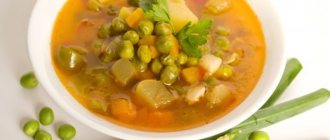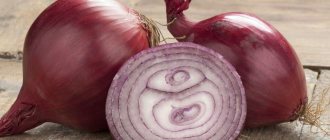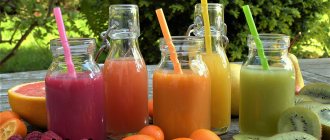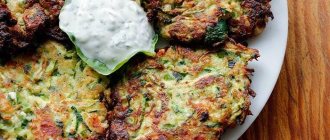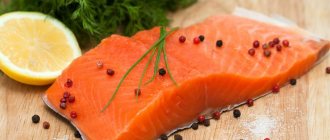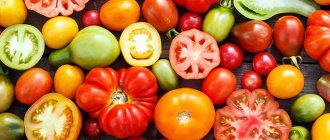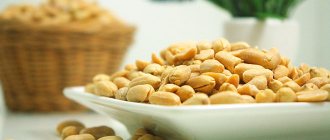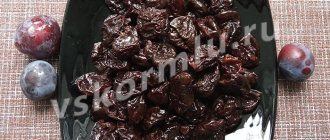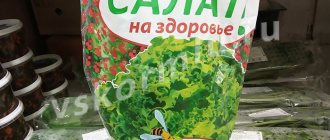Composition of poppy seeds
Poppy contains many substances that have beneficial effects on human health (when consumed in moderation).
| Name of useful element | Main action |
| Vitamin PP | Saturating the body with energy, normalizing cardiac activity and blood circulation, eliminating headaches. |
| Vitamin E | Healing wounds, ensuring hematopoiesis, inhibiting the aging process, stabilizing hormonal levels. |
| Ca (calcium) | Formation of tooth enamel, bones, strengthening of vascular walls, increasing the protective qualities of the body. |
| Co (cobalt) | Improving the functioning of the liver, nerve cells, ensuring hematopoiesis. |
| Na (sodium) | Normalization of water-salt balance, blood pressure, stabilization of heart rate, strengthening of the muscular system. |
| Cu (copper) | Stabilization of temperature indicators, strengthening of the immune system, stimulation of metabolism, improvement of blood composition, elimination of pain syndrome of any localization. |
| K (potassium) | Stimulates brain activity, stabilizes blood pressure, provides energy. |
| Zn (zinc) | Improving memory, relieving emotional stress, improving mood, stabilizing hormonal levels. |
| Mg (magnesium) | Helps in normal blood clotting, ensuring carbohydrate metabolism, stopping pathological processes, relieving emotional stress. |
| Fe (iron) | Nourishing cells with oxygen, ensuring the growth of nerve cells, normalizing metabolism and blood composition. |
| P (phosphorus) | Strengthening bone tissue, teeth, improving memory, kidney function. |
| S (sulfur) | Ensuring rapid growth of hair and nails, maintaining water balance. |
The benefits and harms of poppy during breastfeeding
When choosing baked goods during lactation, many young mothers think about the benefits and harms of poppy seeds. Positive effects of poppy:
- elimination of painful sensations of various types;
- increasing the immune properties of the body;
- getting rid of severe itching;
- fight against worms;
- normalization of the functionality of the gastrointestinal tract;
- relief from constipation;
- assistance in the treatment of diarrhea, dysentery;
- muscle relaxation, restoration of strength, relieving fatigue;
- increased tone.
We recommend reading: Is it possible to eat pomegranate while breastfeeding
? In addition, this product has a calming effect and improves sleep. The beneficial properties of poppy are due to the high content of microelements that are necessary for a woman during the postpartum period.
Before consuming poppy seeds, a nursing woman should become familiar with their negative properties and contraindications.
Answering the question whether poppy seeds are harmful, it should be noted that the grains, in addition to valuable compounds, contain codeine and morphine. Undoubtedly, for food purposes these substances are used in minimal quantities. However, even this dosage can negatively affect the health of the baby. Morphine is a substance that provokes the development of a disorder of the central nervous system, retardation of growth, development of the child’s body, and due to the penetration of codeine into mother’s milk, an allergic reaction, colic, and pain may occur.
There are also some restrictions on the use of products with poppy seeds, including alternative medicines:
- The presence of emphysema, bronchial asthma and other respiratory diseases. Morphine contained in poppy seeds can cause bronchospasm.
- Hypersensitivity to seeds of various plants.
- Chronic constipation. Eating grains will only make the situation worse.
- Cholelithiasis (cholelithiasis), the presence of stones in the gall bladder/ducts.
- Tendency to develop allergies.
If necessary, use poppy-based folk remedies only after consultation with your doctor.
Is it possible for a nursing mother to poppy?
Poppy seed baking is loved by many, but is it allowed for nursing mothers? Poppy seeds contain narcotic substances (opiates). Yes, the proportion of these components in the product is negligible, but how will it affect the baby? Is it possible to eat poppy seeds while breastfeeding? How much of the product is safe?
The benefits and harms of poppy seeds during breastfeeding
Before making a final decision about whether this product is for breastfeeding or not, you need to find out how it can be harmful and useful for nursing mothers and infants. The composition of the seeds is very rich:
- Vitamins (E, PP).
- Minerals (iron, zinc, copper, cobalt, magnesium, calcium).
- Cellulose.
- Fatty acid.
At the same time, all valuable microelements are easily absorbed. And there is even more calcium here than in dairy products.
Regular consumption of poppy seeds has many benefits:
- Improves good sleep in case of insomnia.
- The body feels a slight analgesic effect.
- The function of the gastrointestinal tract is normalized.
- Symptoms of chronic diarrhea are alleviated.
- Tension and fatigue disappear, the functioning of the nervous system returns to normal.
- Strengthens immunity and resistance to seasonal colds.
- Blood pressure is regulated, and the process of hematopoiesis is normalized.
- Metabolic processes are being improved.
- Increases bone strength.
- The condition of hair and nails improves.
- Hormonal levels return to normal faster after pregnancy and childbirth.
Many conservative and traditional medicine preparations are produced on the basis of poppy. These are medicines for hemorrhoids, bronchitis, diseases of the cardiovascular system and liver, etc.
Thanks to these properties, poppy becomes a desirable product on the table of a nursing mother. The baby also benefits, since valuable vitamins and microelements pass into breast milk.
Despite its beneficial properties, under certain conditions, poppy seeds can cause harm to the body. Codeine and morphine, which are part of the seeds, also penetrate into mother's milk along with vitamins and minerals. With excessive use of poppy, doses of these narcotic substances can negatively affect the baby, causing depression of the nervous system and inhibiting the development of the child.
Consumption of poppy seeds stimulates the secretion of bile, so the product is contraindicated in case of cholelithiasis and other diseases associated with the gallbladder.
It is undesirable to eat poppy seeds if you have diseases of the liver and respiratory system, as negative consequences will not keep you waiting.
Poppy is also contraindicated for constipation, an ailment that often affects women after childbirth. Consuming the product will only worsen the situation.
Don't forget about individual intolerance. Poppy seeds are a product that rarely causes allergies, but an infant has not yet developed protective mechanisms, so even harmless products can cause a negative reaction.
Is it possible for a nursing mother to poppy? Experts do not prohibit the use of this product for breastfeeding, but you need to strictly monitor the dosage to avoid unpleasant consequences. Many women who eat baked goods with poppy seeds while breastfeeding note that if you follow the measure, nothing bad happens, and the baby feels great.
How to properly use poppy seeds while breastfeeding
Pediatricians do not recommend baking with poppy seeds for the diet of children under two years of age. But nursing mothers can eat such food from 4-6 months of the baby’s life, if the baby does not have a tendency to allergic reactions.
We recommend reading:Can a nursing mother eat dill?
- For the first time, you can eat a small piece of poppy seed bun or a small dry bread. You need to observe the baby’s reaction for at least two days.
- If allergies or intestinal discomfort do not appear, then you can eat food with the addition of poppy seeds without fear.
- The dose must be carefully monitored. An ordinary bun with poppy seeds (about 2-3 g of seeds per product) will not harm the baby. If we consider a pie where poppy seeds serve as the main filling, then such food will not benefit the baby.
- And also, the mother should remember that baked goods during breastfeeding, regardless of the filling, should be consumed in very limited quantities, since such food causes constipation and colic in the baby.
- To minimize the risk of exposure to drugs on your baby, you should eat poppy seeds no more than 1-2 times a week.
- It is best to prepare poppy seeds at home using lean dough and a small amount of seeds.
When making homemade buns, it is best to use a special poppy seed for baking. This product undergoes certain processing and is considered the safest
When purchasing poppy seeds in a store, you should choose opaque packaging. When opening the package, you need to pay attention to the condition of the product. The seeds must be dry and crumbly; glued and caked lumps are unacceptable. A good poppy seed has no odor; any unpleasant aroma should alert you.
Whether or not to eat poppy seeds during breastfeeding is a nursing mother’s decision for herself. It is only worth noting that in moderate doses this product will not harm the baby.
Source: https://floragaz.ru/mamam/mozhno-mak-kormyashchey-mame
How to eat poppy seeds during lactation
Young mothers with breastfeeding need to introduce poppy into their diet in a minimal amount, starting with a small piece of baked goods, in which the weight of the grains is 5 - 10 g. In this case, it is necessary to monitor the speed of the nervous reactions of the child’s body and the absence of the development of allergies for 48 hours. This is due to the fact that the elements contained in poppy seeds can negatively affect the child’s central nervous system, as well as his overall development and growth.
After using the seeds for the first time, you need to take a week break. If the baby’s well-being does not change for the worse, the introduction of such products can be repeated, gradually increasing the portion.
We recommend reading: Allergenic foods for breastfeeding
When and how to eat buns during breastfeeding
Initially, you need to check the flour treat for safety for the baby. Therefore, for the first time it is recommended to eat a very small piece of bread, and it is better to do this in the first half of the day.
Since buns are not very healthy, they are introduced into the menu of a nursing mother quite late - 4-5 months after birth and only after all the products included in the product have been introduced.
Then you should monitor the child for 24 hours. If there are no problems with digestion and allergies have not manifested themselves, then such food is relatively safe for the child and can be introduced fully.
Pediatricians recommend eating no more than 1 bun per day, weighing approximately 100-120 grams. There should be no more than 2 such receptions per week.
If a nursing mother has problems with excess weight or suffers from any of the diseases described above, then the number of doses per week is reduced to one and initially consulted with a doctor.
Selection of confectionery with poppy seeds
Breastfeeding women are allowed to eat fresh poppy seed buns in small portions. The introduction of this product should begin when the baby reaches three months of age (it is advisable to wait six months). Early consumption of confectionery products with poppy seeds is fraught with negative consequences for the child’s body, since the newborn’s digestive system is weakened and will not be able to digest this product without the occurrence of painful symptoms. In addition, the effect of poppy on the development and growth of infants has not been fully studied.
Rusks and dried poppy seeds during breastfeeding can cause increased accumulation of gases in the intestines and bloating of the baby's tummy. And for a young mother, consuming such products can result in constipation. During breastfeeding, it is allowed to include casseroles, cereals, and puddings in the menu with the addition of a small amount of the seeds in question.
Below are recipes for homemade baked goods that mothers can eat during breastfeeding, but do not overuse them.
Buns with poppy seeds made from rye flour
Ingredients:
- 0.2 l sour cream;
- 2.5 tbsp. rye flour;
- 1 tbsp. l. vegetable oil;
- half a teaspoon of salt and citric acid;
- 1 tsp. baking soda.
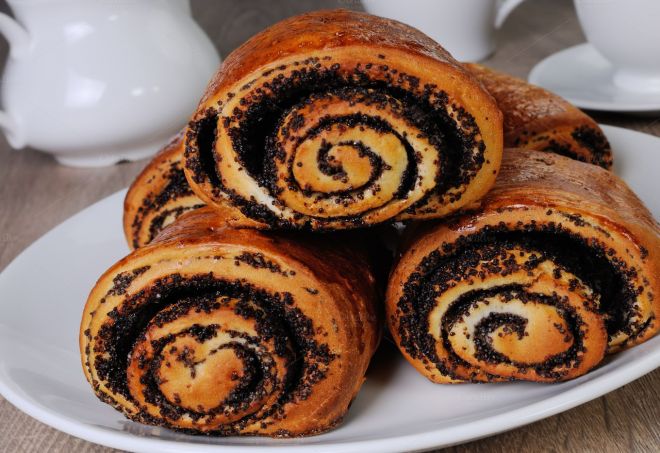
Manufacturing steps:
- Knead a homogeneous dough from the prepared products, leave for ½ hour to “rest”.
- After time, form buns, sprinkle with poppy seeds (no more than 1 teaspoon per bun).
- Place on a baking tray lined with parchment.
- Cook for 1/3 hour at 180°.
The baked goods are ready.
What benefits can buns bring while breastfeeding?
As you have seen, buns, if consumed in excess, can cause significant harm to the health of a nursing mother and her baby, but pediatricians still do not classify such products as prohibited.
The fact is that, despite the abundance of harmful properties, buns also have some useful qualities.
- Due to the fact that the dough consists almost entirely of fast carbohydrates, the buns quickly fill you up. Breastfeeding moms usually have very little time for snacking, so these foods can be very convenient.
- Although buns contain very few useful substances, they still exist. So, depending on the composition, you can find calcium, iron and magnesium in the rolls. All these microelements are extremely important for a nursing mother and a growing child’s body, as they contribute to faster recovery and development.
- Sweets help women fight postpartum depression and stress because they activate the production of the joy hormone. Since the buns contain sweet ingredients, they also have similar properties.
When preparing buns, various ingredients are used, which also have their own beneficial properties. For example, a bun with cottage cheese contains a significant amount of calcium and helps strengthen bones.
